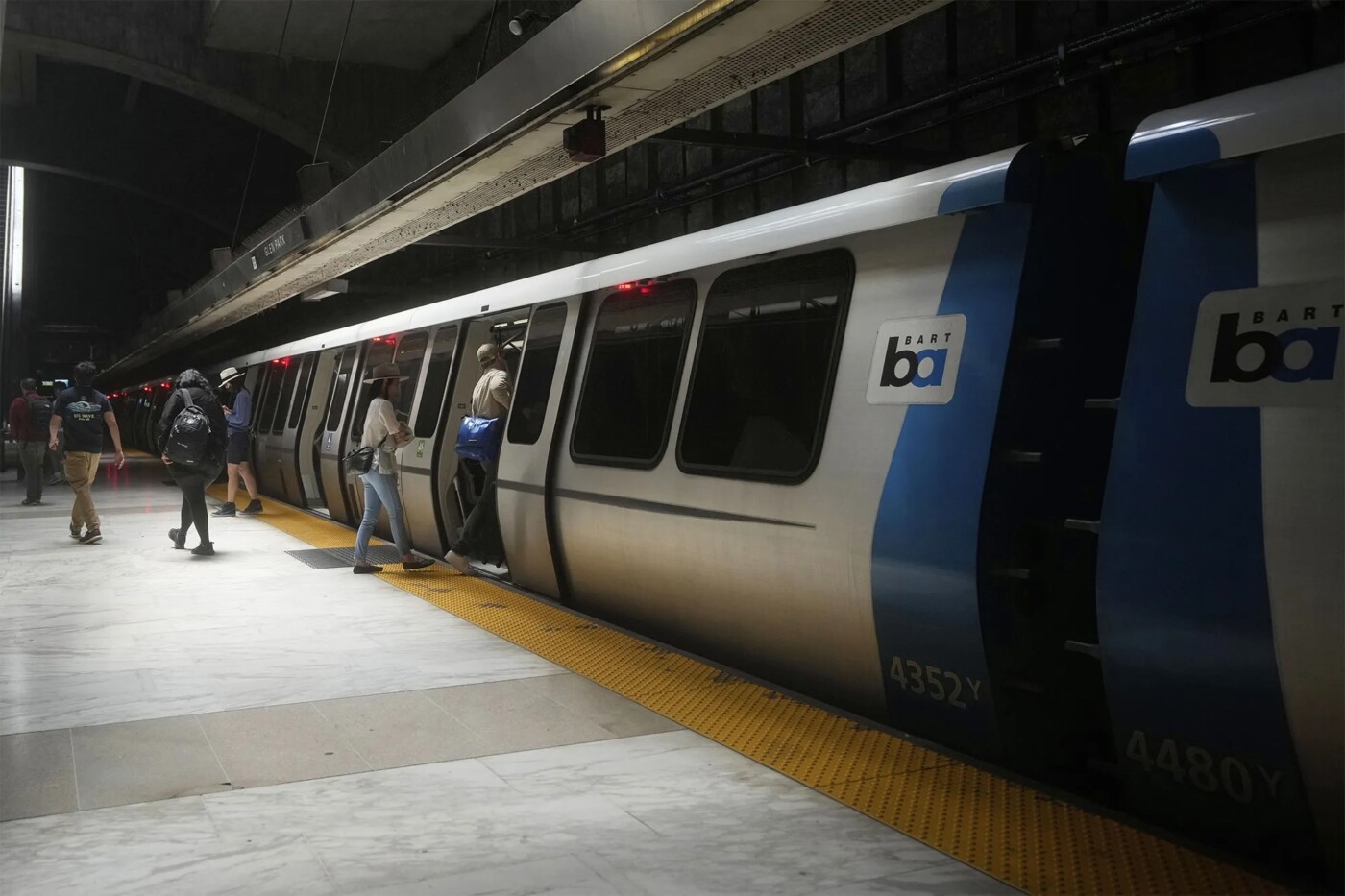A pair of Bay Area state lawmakers along with various transit advocates are calling for more investment in public transportation systems after BART suffered a regionwide service meltdown Friday.
In a joint statement, Democratic state Sens. Scott Wiener of San Francisco and Jesse Arreguín of Berkeley said BART’s roughly four-hour systemwide service outage Friday morning was “a window into what life in the Bay Area will be like without robust BART service.”
The system carries about 170,000 passengers on a typical weekday, according to the pair, and Friday’s service disruption during the height of the morning commute led to major traffic impacts on the region’s freeways.
It also forced other transit agencies, including Alameda-Contra Costa Transit and the San Francisco Bay Ferry system, to add more buses and bigger boats to their service schedules to accommodate desperate commuters.
Additionally, ride-hailing service companies implemented surge pricing — higher prices during peak periods of demand — while the fiasco unfolded and people scrambled to find alternative ways to work.
The BART system collapse — which began around 5 a.m. and lasted until service was restored around 9 a.m. — was caused by “network devices having intermittent connectivity,” which meant that workers in the agency’s Operations Control Center couldn’t track train positions, a necessity for safe operations, according to BART officials.
Incident illustrates importance of transit
Wiener and Arreguín used Friday morning’s chaos to advocate for their efforts to earmark $2 billion in the state budget for transit statewide.
“This outage showed once again how essential BART — and transit generally — is to life in the Bay Area,” according to the state senators’ joint statement. “Everyone suffers when we lose robust public transportation service: our roads rapidly become choked with traffic, workers are unable to make it to work, children miss their rides to school, and businesses lose customers.”
A group of transit activists echoed the lawmakers’ plea Friday, saying that if BART’s budget isn’t shored up, the agency could cut its number of daily train trips from 4,200 to just 500.
Currently, BART is projecting ongoing structural deficits of between $350 million and $400 million annually beginning in fiscal year 2027.
“This outage showed once again how essential BART — and transit generally — is to life in the Bay Area. Everyone suffers when we lose robust public transportation service. …”
State Sens. Scott Wiener and Jesse Arreguín
“If left unfunded, BART will be forced to reduce service to one train per hour and cut entire lines,” said Dylan Fabris of the advocacy group San Francisco Transit Riders. “Muni will see 30 percent service cuts, and other agencies like AC Transit, Caltrain, and Golden Gate Transit will also need to cut service.”
On Friday afternoon, BART general manager Robert Powers issued an apology for the disruption.
“Reliability is our brand, and we understand the impact when the system isn’t working. This came down to the fact our control room did not have visibility of our system, and we will not run service if we can’t guarantee safety,” Powers said. “We will learn from this incident and are committed to continuous improvement.”
The post Chaotic commute: BART’s morning meltdown spurs call for more public transit investment appeared first on Local News Matters.
